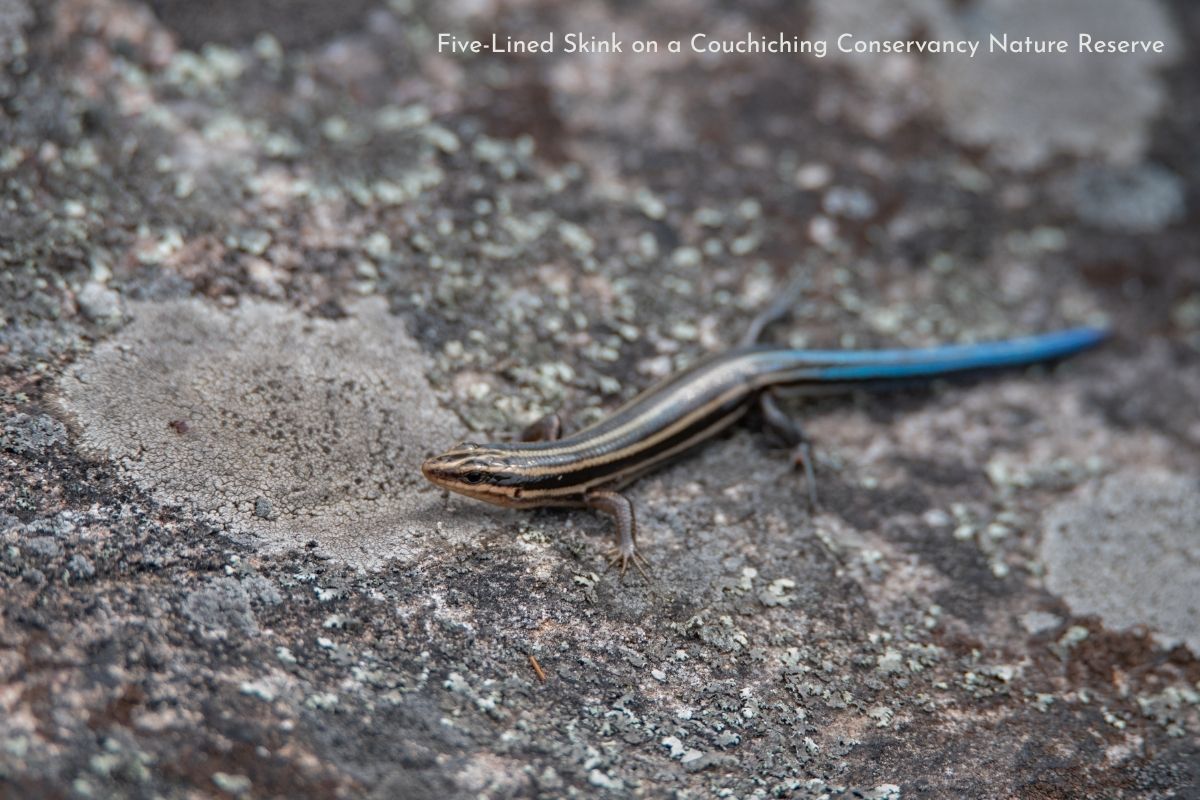To increase the community’s awareness of Couchiching Conservancy’s work, we’re writing monthly columns in the local media. The below article was originally published in Orillia Matters on July 2nd.
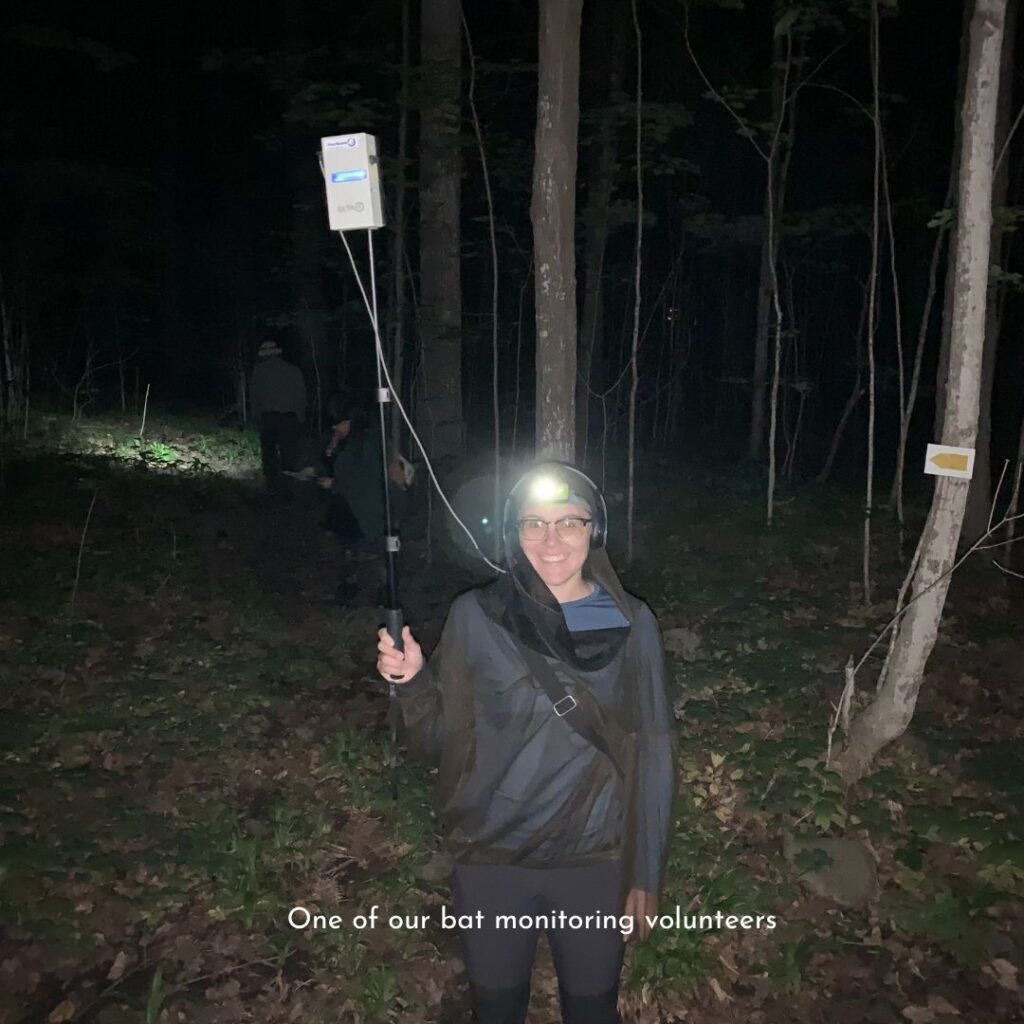
Jocelyn and Brian trudge through the darkness, trying not to trip over tree roots as they make their way to the next bat monitoring station. It’s 10pm, and they’re visiting a nature reserve protected by the Couchiching Conservancy to record bat sonar.
While Jocelyn is Conservancy staff, Brian is one of more than 200 volunteers willing to get muddy, hot, and bug-bitten in their free time for the Conservancy’s community science programs. These programs observe and count bats, salamanders, butterflies and more; in order to contribute to a broader understanding of the health of their populations.
Couchiching Conservancy is a land trust, which means people donate or sell land to us, and we in turn put legal protections on it to ensure it will forever remain undeveloped and in its natural state.
In 1993, The Couchiching Conservancy was founded by eight local citizens to protect nature for future generations. That’s our mission. We preserve natural land which in turn protects the species living on it. By protecting natural land, we have a way to affect two of the biggest crises facing our planet: climate change and biodiversity loss.
Except most people don’t know the second one is a problem.
I asked a few people I care about, what they would say about biodiversity loss.
My husband: “it’s a loss of green spaces”.
My neighbour: “it’s how the planet is changing and having more fires”.
My mom: “it’s not good that we have genetically modified food”.
These three people, who are forced to listen to me talk daily about ecological degradation (I’m a joy to live with) aren’t quite able to explain biodiversity loss, though it’s clear to them it’s an environmental issue.
The species on this planet, animal, plant and insect, have interconnected relationships to each other. Humans simply do not understand exactly how each species affects others. A National Geographic article estimates there might be 8.7 million species on Earth and that scientists have only catalogued roughly 15% of them. We have a pretty decent handle on mammals and birds. New discoveries in these areas leveled off decades ago. But it’s estimated we know less than 20% of marine, fungi and insect species.
In lay terms, biodiversity loss is the fact that we’re losing species to extinction faster than we can possibly learn about them.
Our Executive Director once gave a talk to a local seniors’ group explaining we monitor nature reserves for endangered species because their presence indicates great ecological habitat. A gentleman spoke up that he’d always been one of those people who gets annoyed when they hear of large amounts of money spent to preserve one single species. That was the first time he’d heard presence of an endangered species is a clear indication of excellent habitat that should be preserved. His mind was changed that day.
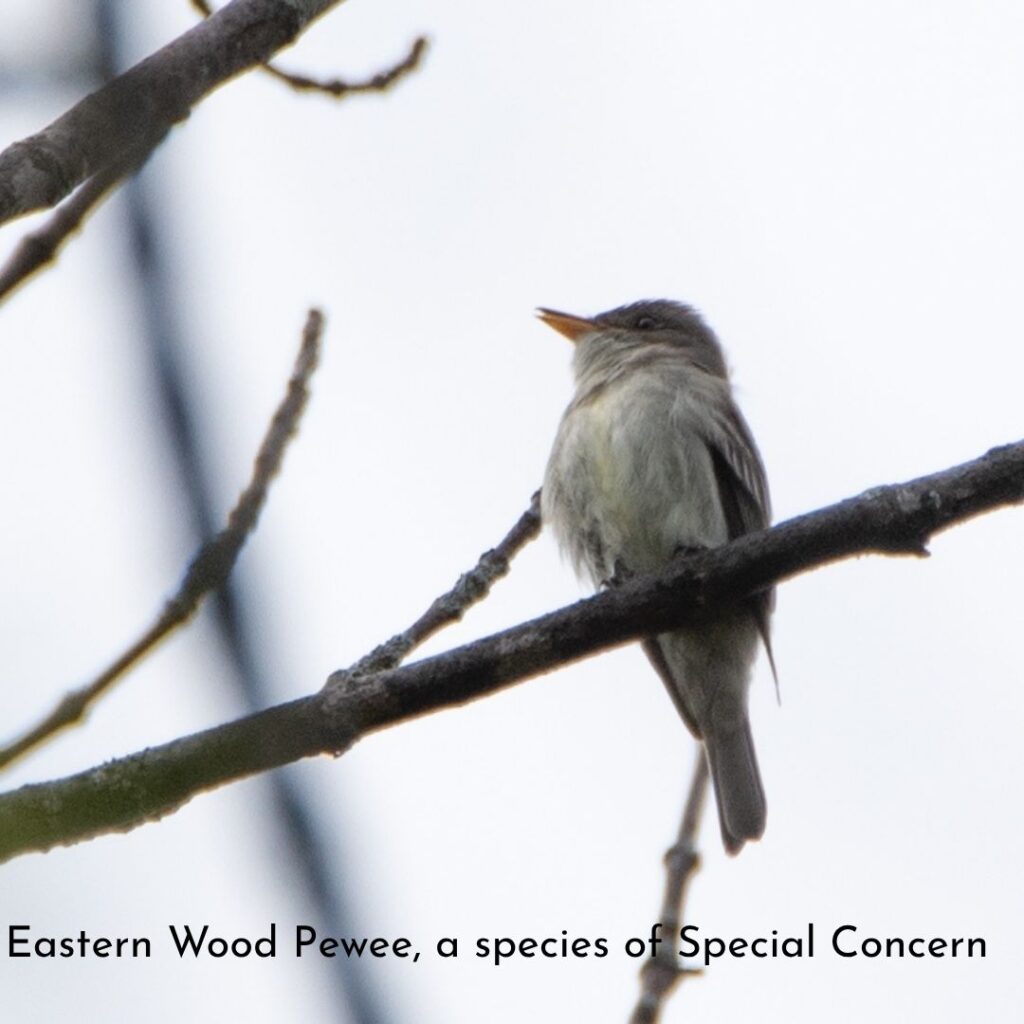
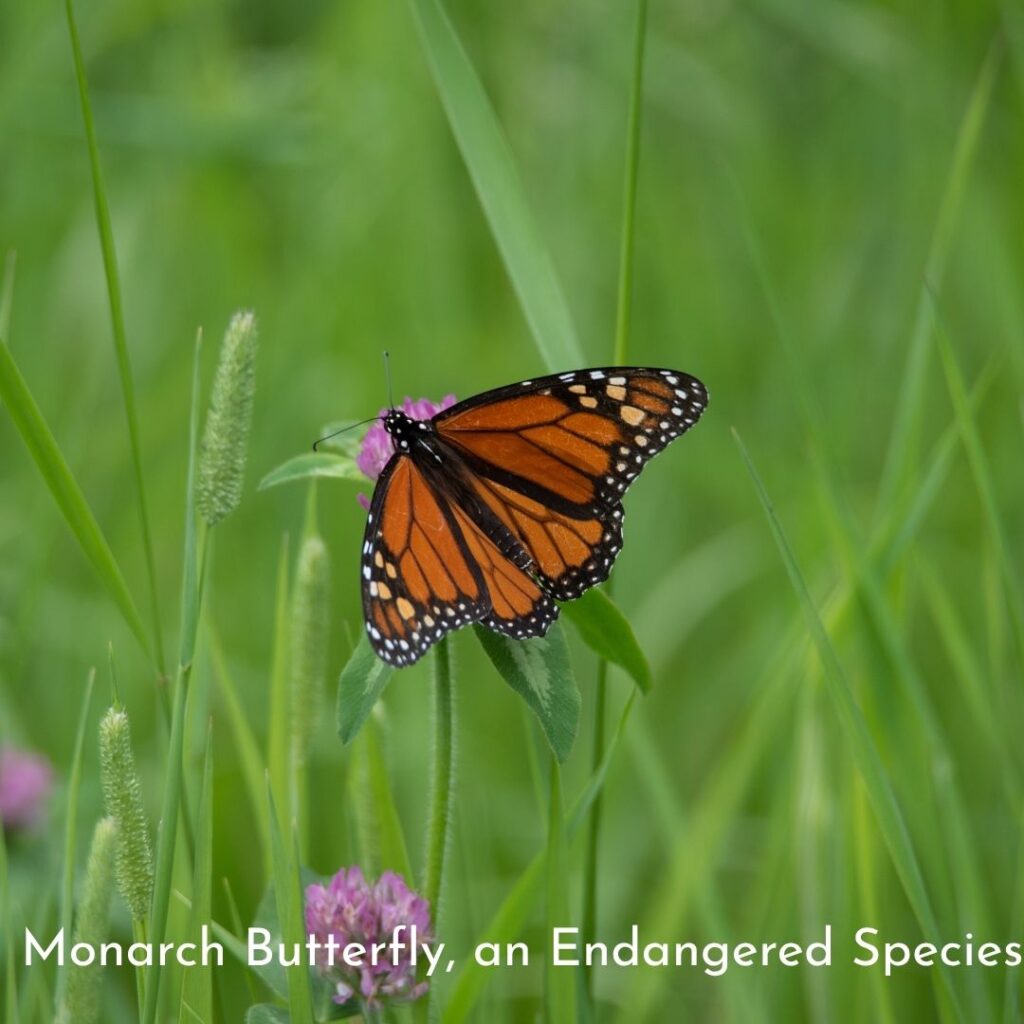
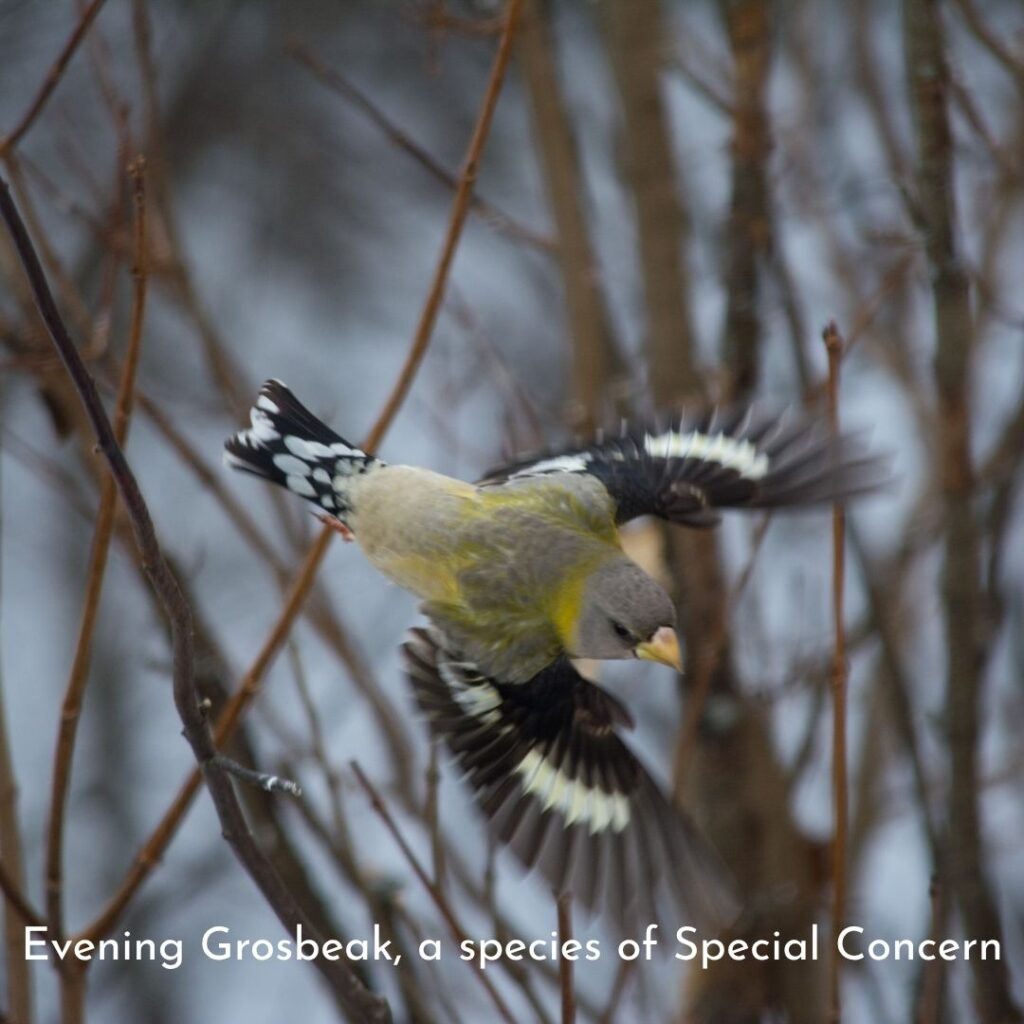
By protecting land and monitoring the species on our nature reserves, like Jocelyn and Brian have been doing with bats, the Couchiching Conservancy is helping to reduce biodiversity loss in our region. It’s important work—doubly so because biodiversity loss is an issue that’s only just beginning to enter public consciousness. It’s work our supporters, volunteers and staff are incredibly proud of, though it’s incredibly tricky to discuss some of the solutions on offer, when few are yet aware of the problem.
This is the 9th in a series of columns by Meg Whitton, formerly of Bounce Radio, now working in conservation at The Couchiching Conservancy.

